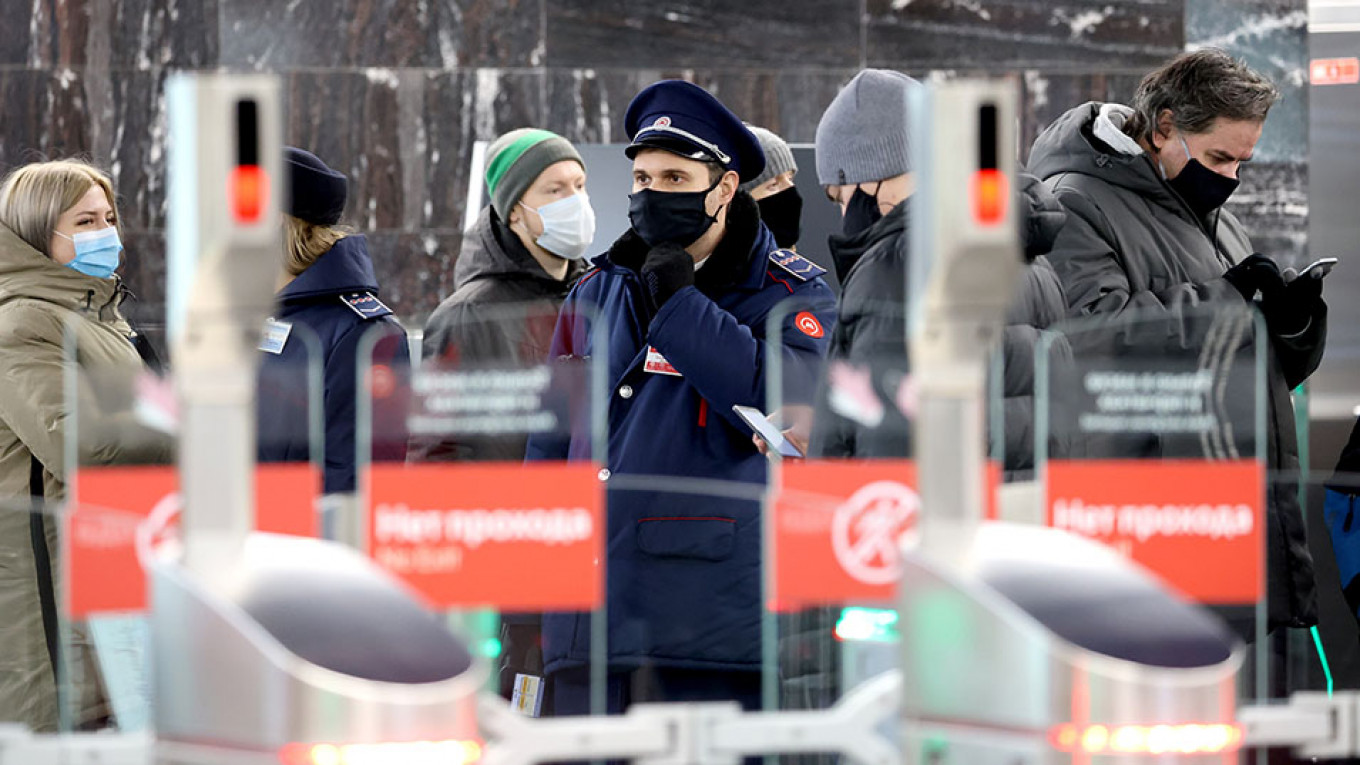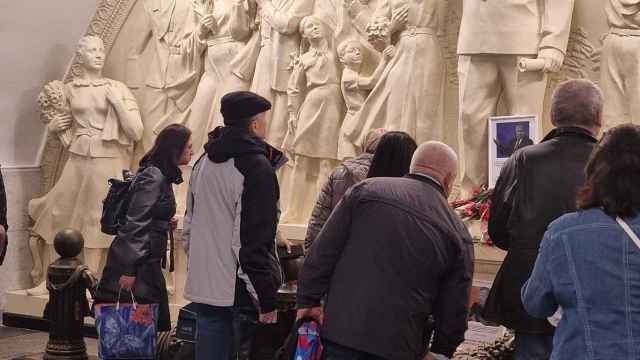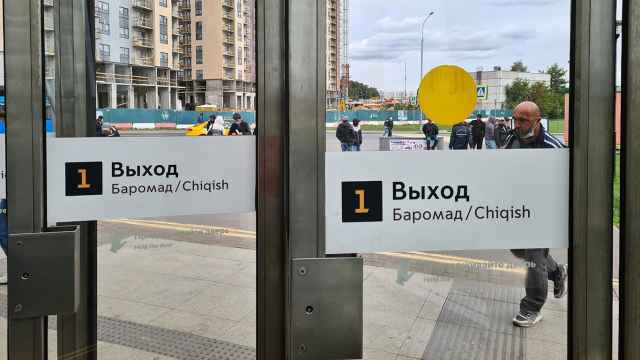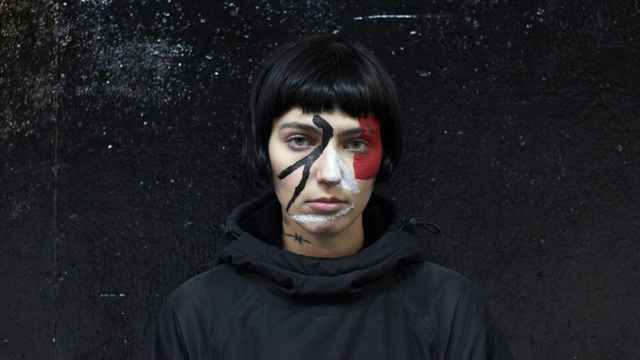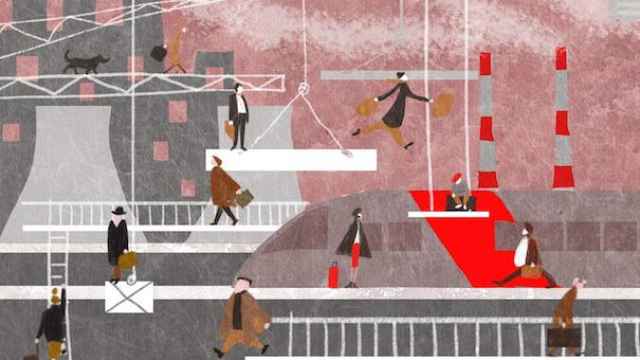Moscow authorities have allocated more than $10 million to purchase and install across the city's sprawling metro system high-definition cameras that can recognize faces and track fast movements, Russian media reported Thursday.
Russia's capital Moscow in recent years has developed a vast network of some 100,000 facial recognition cameras, sparking concerns from activists over state surveillance.
Those concerns were heightened in the wake of protests in January and early February over the jailing of Kremlin critic Alexei Navalny after demonstrators and activists claimed police had tracked down people present at the rallies using facial recognition technology.
On Thursday, the Kommersant business daily reported that Moscow city officials have allocated another $12.5 million to expand that system.
According to a tender on the government's procurement website, authorities will purchase video surveillance cameras to be installed at 85 metro stations that will be able to auto-focus, shoot in high definition and recognize faces.
They will also be able to track fast movements and spot loiterers.
A Moscow metro spokesman told the Interfax news agency Thursday that the new cameras would not be used to trace specific individuals.
Kommersant reported that the city's metro system already had 5,000 working facial recognition cameras in the metro system in 2020.
Last year a Moscow court rejected a lawsuit by a prominent opposition activist who claimed the city's facial recognition system was used illegally to identify her and her supporters without consent.
Earlier this month an unnamed law enforcement official told the state-run TASS news agency that facial recognition cameras were used to identify and detain regular protesters ahead of the rallies that broke out in support of Navalny this year.
In the wake of the protests that saw some 11,500 people detained and ahead of parliamentary polls this fall, Russia is moving to stifle dissent.
On Wednesday, Russian President Vladimir Putin signed off on a raft of bills ramping up fines for protesters and social media platforms.
A Message from The Moscow Times:
Dear readers,
We are facing unprecedented challenges. Russia's Prosecutor General's Office has designated The Moscow Times as an "undesirable" organization, criminalizing our work and putting our staff at risk of prosecution. This follows our earlier unjust labeling as a "foreign agent."
These actions are direct attempts to silence independent journalism in Russia. The authorities claim our work "discredits the decisions of the Russian leadership." We see things differently: we strive to provide accurate, unbiased reporting on Russia.
We, the journalists of The Moscow Times, refuse to be silenced. But to continue our work, we need your help.
Your support, no matter how small, makes a world of difference. If you can, please support us monthly starting from just $2. It's quick to set up, and every contribution makes a significant impact.
By supporting The Moscow Times, you're defending open, independent journalism in the face of repression. Thank you for standing with us.
Remind me later.


